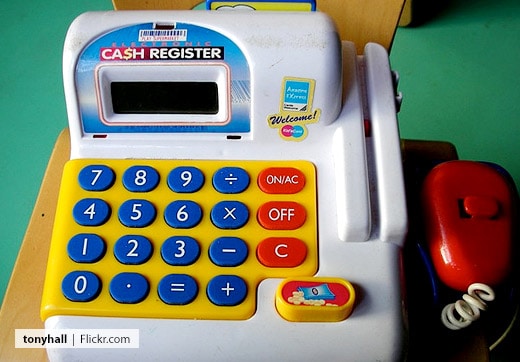You’ve heard it before. You are your brand. Like it or not, you will be defined by the work you do. But, that extends beyond whether you did a good job for a client or not. It means really taking a deep look at the projects you work on and the clients you are involved with. Even if you are just starting out — and feel it’s a special brand of insanity to pass up any potential opportunities — it’s vital to learn when to decline work.
Do you REALLY have the time to take on a project (it is career suicide to commit and not deliver)? Do you really need it in your portfolio or want to be associated with a specific project?
It’s not all about the money. We all need to make a living. But can your professional reputation survive working for a firm that pays well but is a real-life version of a cartoon villain tying maidens to train tracks and stealing candy from babies? It’s important to evaluate potential clients and determine if their morals and practices align with yours – not just if their budget does.
Conversely, even if you are approached by a dream client, there are other factors to consider. Do you REALLY have the time to take on a project (it is career suicide to commit and not deliver)? Do you really need it in your portfolio or want to be associated with a specific project?
In his blog, When should a designer decline work?, Mark Busse, founding partner and managing director of strategy and brand design firm Industrial Brand, suggests the following tips to help you with your decision:
- Will you be proud of being associated with this company and its product or service? If you feel the company is not on the up and up or doesn’t make you comfortable, it’s not worth it.
- What are your long-term goals for the type and caliber of projects you want to be known for. If a project doesn’t align with those goals, consider declining.
- Talk to those who have worked with a client and get their feedback. Ask how the company treated them and if they reliably paid for work done. Busse even suggests running a credit check to determine the client’s history. Bottom line: “If they seem difficult, they will be. Decline the work,” he relates.
- Practice talking about budget and money up front. If the client won’t talk about it, danger, danger, danger! “When someone doesn’t want to talk about money at all, they may say ‘just give me a proposal.’ That may be a red flag about whether or not they’re a good client to work with in the first place,” says Ilise Benun, founder of Marketing Mentor, in the blog Talking Budget with your Clients. In addition, don’t pitch a budget low ball to get the client. Stand by your expertise and ask for what you’re worth.
- Start tracking hours. Look at industry standards to come up with realistic project estimates and timelines and add another 20%, suggests Busse. Compare your estimate with the client’s expectations and negotiate. If they aren’t on board or willing to work with you, decline the work.
- Develop a loose script you can use to discuss the previous issues with clients. But most importantly, LISTEN TO YOUR GUT. If it doesn’t feel right, it’s not. Believe it or not, intuition is not just something that comes out of thin air; it actually arises from our brain circuitry.
According to Busse, if more than TWO of the issues are a concern, it’s time to politely decline. Ensure that you say no with respect and keep a door open. It’s a small world, after all, and you may see these people again!
